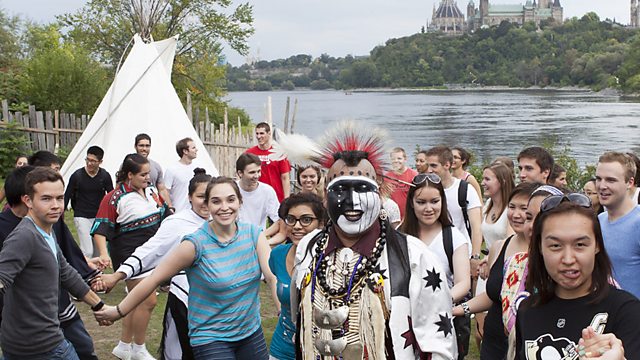Indigenous Rights and Medicine
Effective healthcare for indigenous communities in Canada. Plus, the future for female condoms, tackling diabetes with a text message and climate change and malaria.
In Canada First Nations communities are facing high rates of diabetes, tuberculosis, depression and substance misuse. In part this is the legacy of mistreatment in the past at the hands of the Canadian authorities. Generations of native children were taken away to schools far away from their homes where some were subjected to sexual, emotional and physical abuse. Poor housing and healthcare also contribute to health problems today, with some communities so remote that it can be hard to attract medical staff to work there. We look at a project involving University of Ottawa first year medical students, who are learning how they might be able to have a positive impact on First Nations communities in the future.
Female Condoms
More than 20 years ago a new form of contraception was invented – the female condom. Fifty million are now used each year, but 500 times as many male condoms are used. Trials in China and South Africa have shown three new kinds of female condom to be effective. We ask why female condoms haven’t caught on and whether the new designs are any more popular.
Malaria
When climate change is discussed one of the worries is the effect it might have on health and whether malaria in particular might increase if hot, wet conditions become more widespread. But a new way of predicting future malaria infections developed by scientists at MIT in the USA, suggests it’s not that straightforward.
Texting away Diabetes
Results from new research in India show that a series of carefully-timed SMS messages from your doctor, encouraging you to change your lifestyle, can help stem the onset of diabetes. Diabetes is a growing issue in the region and the experiment with texting suggests it may provide an inexpensive way to convey positive health messages.
(Picture: Medical students learn about the healthcare needs of indigenous communities, University of Ottawa, Canada. By Alice Beaudoin)
Last on
More episodes
Previous
Chapters
-
Indigenous medicine
Appropriate health care for Canada’s First Nations
Duration: 08:08
Female condoms
New ideas for encouraging greater use of female condoms
Duration: 06:42
Mosquitos feeling the heat
Climate change may kill off malarial mosquitos in some regions
Duration: 03:42
Texting away diabetes
Positive health messages in text form are helping to reduce levels of diabetes in India
Duration: 05:14
Broadcasts
- Wed 18 Sep 2013 18:32GMTÃÛÑ¿´«Ã½ World Service Online
- Thu 19 Sep 2013 01:32GMTÃÛÑ¿´«Ã½ World Service Online
- Thu 19 Sep 2013 08:32GMTÃÛÑ¿´«Ã½ World Service Online
- Sun 22 Sep 2013 07:32GMTÃÛÑ¿´«Ã½ World Service Online
- Sun 22 Sep 2013 22:32GMTÃÛÑ¿´«Ã½ World Service Online
Podcast
-
![]()
Health Check
Health issues and medical breakthroughs from around the world.


